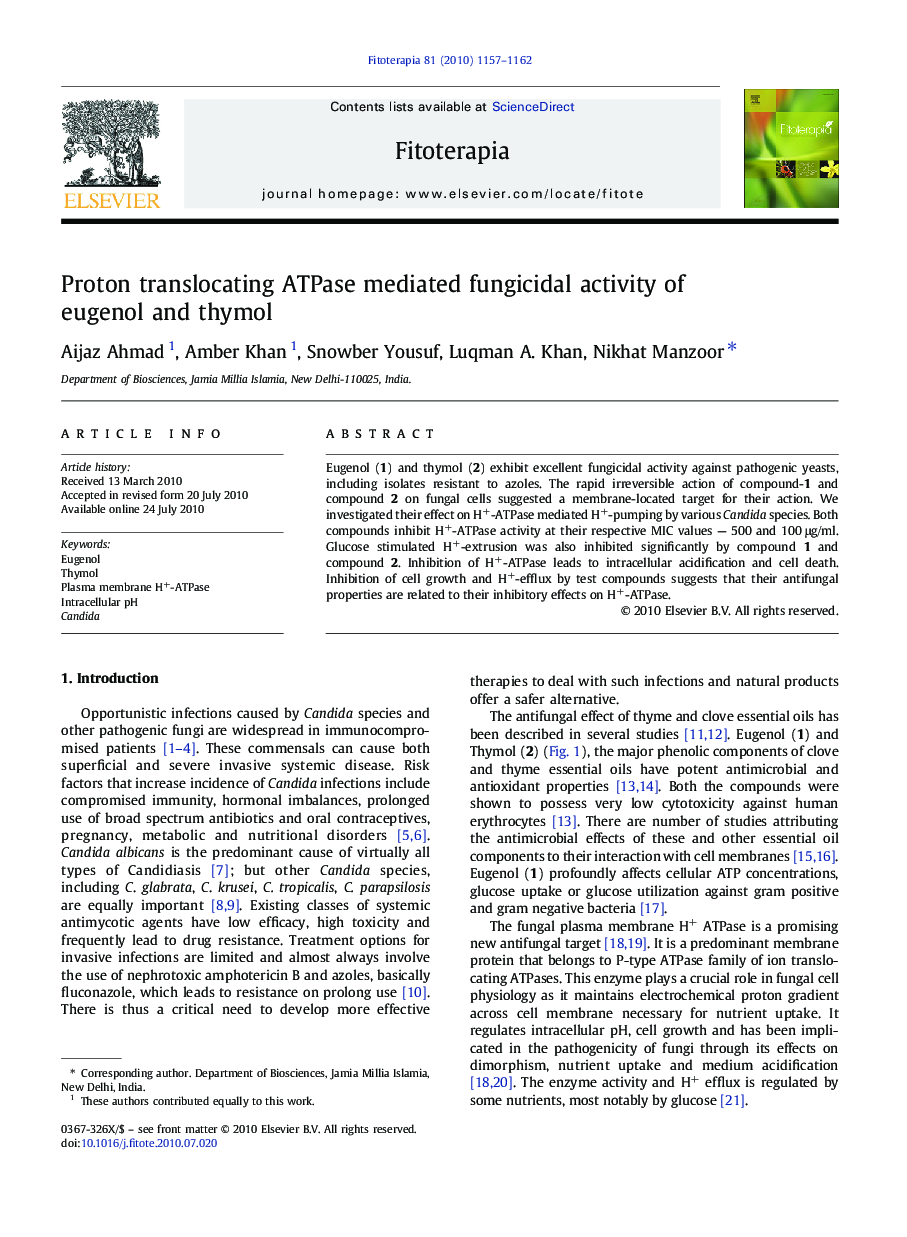| Article ID | Journal | Published Year | Pages | File Type |
|---|---|---|---|---|
| 2539074 | Fitoterapia | 2010 | 6 Pages |
Eugenol (1) and thymol (2) exhibit excellent fungicidal activity against pathogenic yeasts, including isolates resistant to azoles. The rapid irreversible action of compound-1 and compound 2 on fungal cells suggested a membrane-located target for their action. We investigated their effect on H+-ATPase mediated H+-pumping by various Candida species. Both compounds inhibit H+-ATPase activity at their respective MIC values — 500 and 100 μg/ml. Glucose stimulated H+-extrusion was also inhibited significantly by compound 1 and compound 2. Inhibition of H+-ATPase leads to intracellular acidification and cell death. Inhibition of cell growth and H+-efflux by test compounds suggests that their antifungal properties are related to their inhibitory effects on H+-ATPase.
Graphical abstractEffect of Eugenol(1) and Thymol(2) on H+-extrusion and glucose stimulated H+-extrusion by plasma membrane ATPase of Candida has been investigated and correlated with growth rate, viability and resistance.Figure optionsDownload full-size imageDownload as PowerPoint slide
